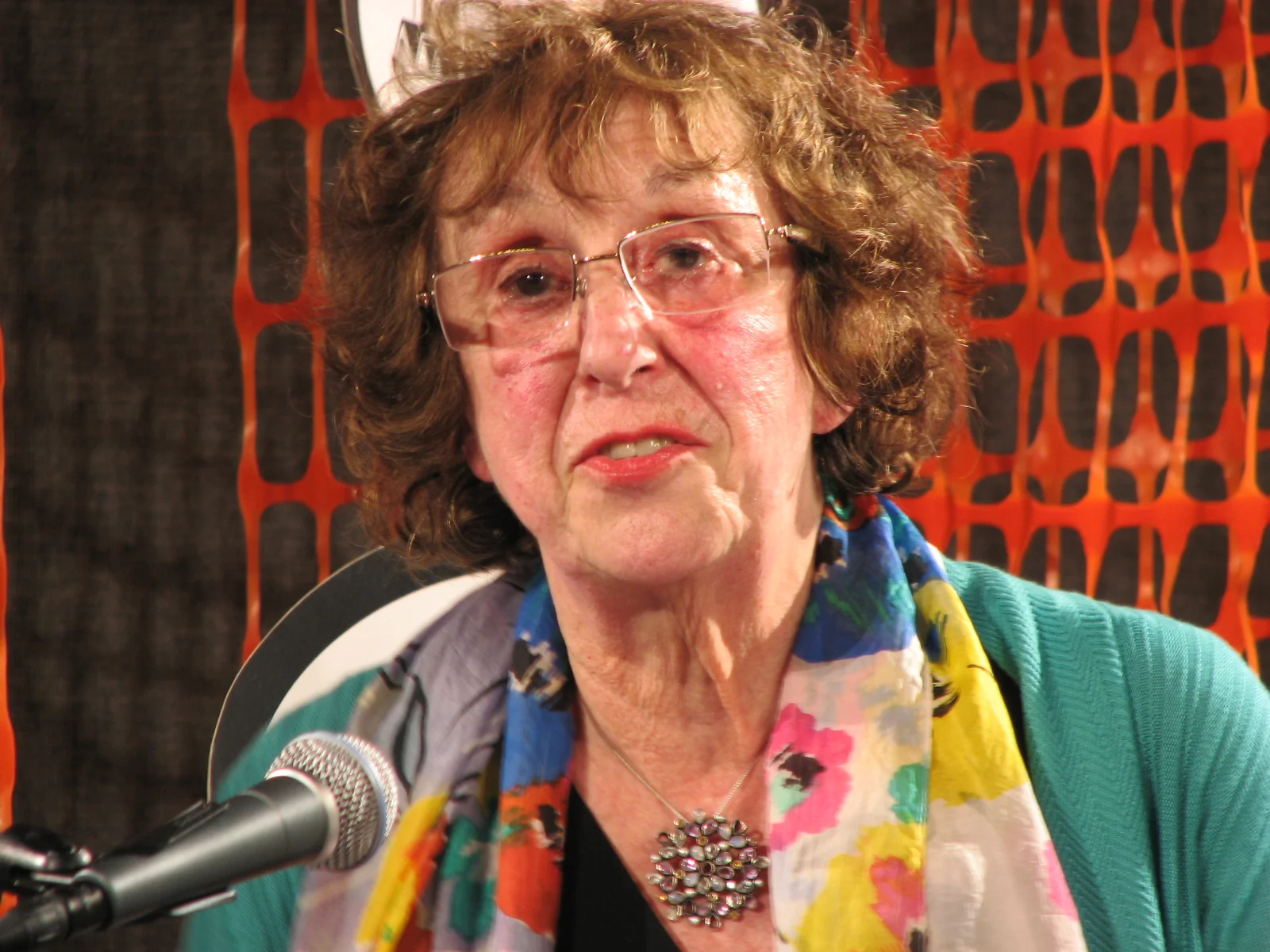In honour of the prize-winning poet we revisit our 2018 interview with her
In her 2010 collection, Cities, the poet Elaine Feinstein writes of being an undergraduate at Cambridge in 1949. She sees herself as she “teeters…on high heels over the cobbled street…the music of wartime dance bands still inside her”.
Born in Liverpool in 1930, she won an exhibition to read English at Newnham College, Cambridge and went up to the university in 1949 – a year after the first women were admitted to full membership of the university. After graduating, she read for the Bar in London but returned to Cambridge with her husband, the molecular biologist Arnold Feinstein, in 1956. They and their three sons lived in the centre of the city until the 1980s. Writers from across the world, including Allen Ginsberg and Yehuda Amichai, visited them there. Cambridge and its river, the Cam, appear in several of her collections. Here she recalls her life in the city.
Odile Crick and Elaine in Mexico. Elaine rented the Cricks’ house in Cambridge. Courtesy of Elaine Feinstein
“My college, Newnham, was one of two women’s colleges among 22 men’s colleges. I was among the first women to take the English tripos alongside men. There was an enormous disparity between the number of men and women, so there were lots of parties and boyfriends for us women.
There was an assumption that women were not as bright as men. And the women who were considered bright were thought of as bluestockings. They certainly weren’t considered as sexually attractive as the legions of au pair girls that used to work for Cambridge families.
Being at Cambridge didn’t liberate me. I’m a 1940s girl and felt liberated in my teens during World War II. The war made everyone feel that you might as well have fun if you could. My family let me go to the Palais de Danse in Leicester and dance with American soldiers. The 50s were conventional by contrast. But Cambridge was paradise. I loved it. I didn’t think of it as studying, but of discovering literature, which I have loved ever since.
I lived in Newnham College with the other women; only the men were allowed to live outside the colleges. I wrote some short stories that were published in Granta and I remember Anthony Shaffer [who coedited Granta with his brother Peter] lent me his Trinity rooms for my birthday party.
© Kaido Vainomaa
But there was sexism. I felt looked down on sometimes. One male undergraduate told me I would do better if only I were not so competitive. I thought: ‘Aren’t you competitive? Why shouldn’t I be?’ It was considered unnatural for a woman to want to be the best.
I didn’t experience any antisemitism there. After the war was a good time to be Jewish. Israel had just been founded in 1948 and many non-Jews thought that was a good thing. There was a Jewish Society and I made lifelong friends there. The JSoc’s main activity was to have a Friday night supper and then have a culture talk afterwards – many people there were not in the least bit religious.
When I returned to Cambridge after graduating, I rented a house in Portugal Place belonging to the scientist Francis Crick and his wife Odile. They were very charming. We lived there with our children – and a whole host of friends lived with us, such as the journalist David Leitch and novelist Tony Ward. We did not have a conventional household. I had young children and was teaching undergraduates for several colleges so I was often very tired. But that was a terrific time.
I became the editor of a university magazine called Cambridge Opinion and invited American poets such as Allen Ginsberg and Gregory Corso to contribute. Writing poured in. I set up my own magazine called Prospect and continued to publish lots of American writing.
Elaine and her friend the poet Carol Ann Duffy me his Trinity rooms for my birthday party. Courtesy of Elaine Feinstein
We bought a house in Park Parade and it was around that time that I came across the work of the Russian poet Marina Tsvetaeva. Up until then all my influences had been the cadences of American literature. But after discovering Tsvetaeva, I knew I didn’t want my poetry to be like that any more. I recognised the power of a voice without English reticence and often writing about undignified emotions. She released me into her world, where what you felt was true.
I left the city in the early 1980s and it has changed a lot since then. In the 1970s the city had great poetry festivals with lots of European, Russian and American poets. That’s not happening now. Spoken word has become popular but poetry also needs a voice and performance poetry is different from poetry. It is more like rap. But I was at the Latitude Festival recently and I thought, ‘I’m going to hate this. People are going to be trooping in and out of my readings and not listening.’ But I loved it. People sat and listened and whooped at my poems as if they were at a pop concert. I thought: ‘I could have more of this'.”
By Rebecca Taylor
Header photo by Ave Maria Moistlik
This article also appears in the Apr 2018 issue of JR.




